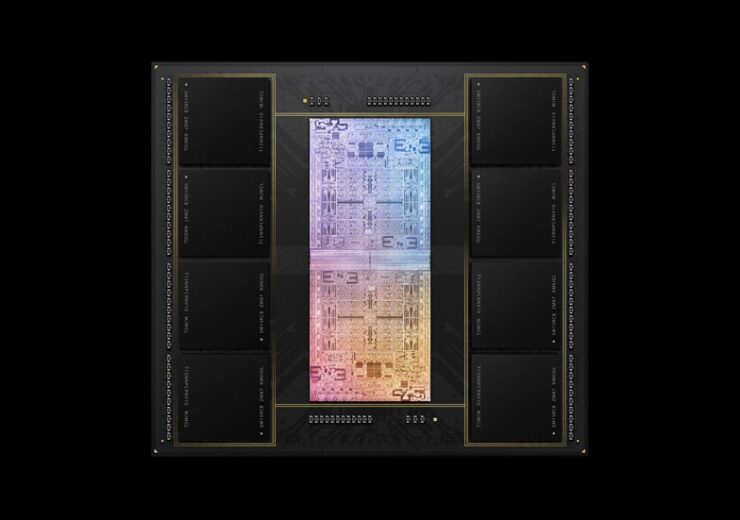The new SoC, which is available in Mac Studio, is made up of 114 billion transistors

Apple’s M1 Ultra chip consists of 114 billion transistors. (Credit: Apple Inc.)
Apple has unveiled a new a system on a chip (SoC) for personal computers called M1 Ultra chip, which features the company’s UltraFusion packaging architecture.
According to Apple, UltraFusion interconnects the die of two M1 Max chips to create the M1 Ultra chip with high levels of performance and capabilities.
Available in Mac Studio, a newly introduced Mac desktop, the new SoC is made up of 114 billion transistors.
Apple said that the M1 Ultra chip can be configured with a maximum of 128GB of high-bandwidth, low-latency unified memory, which can be accessed by the 20-core central processing unit (CPU), 64-core graphics processing unit (GPU), as well as 32-core neural engine.
Apple hardware technologies senior vice president Johny Srouji said: “M1 Ultra is another game-changer for Apple silicon that once again will shock the PC industry. By connecting two M1 Max die with our UltraFusion packaging architecture, we’re able to scale Apple silicon to unprecedented new heights.
“With its powerful CPU, massive GPU, incredible Neural Engine, ProRes hardware acceleration, and huge amount of unified memory, M1 Ultra completes the M1 family as the world’s most powerful and capable chip for a personal computer.”
Apple said that the M1 Ultra’s 20-core CPU has 16 high-performance cores and four high-efficiency cores. The multi-threaded performance delivered by the chip is claimed to be 90% more than the fastest available 16-core PC desktop chip in the same power bracket.
In addition to that, M1 Ultra is said to reach the peak performance of the PC chip using 100 fewer watts.
For 3D rendering, complex image processing and other graphics-intensive requirements, the new chip has a 64-core GPU, which is claimed to deliver faster performance than even the highest-end PC GPU available while consuming 200 fewer watts of power.
The 32-core neural engine in the new chip can run up to 22 trillion operations per second to speed through the most challenging tasks in machine learning, claimed Apple.
In October 2021, Apple had launched the M1 Pro and M1 Max chips for its MacBook Pro notebooks.


